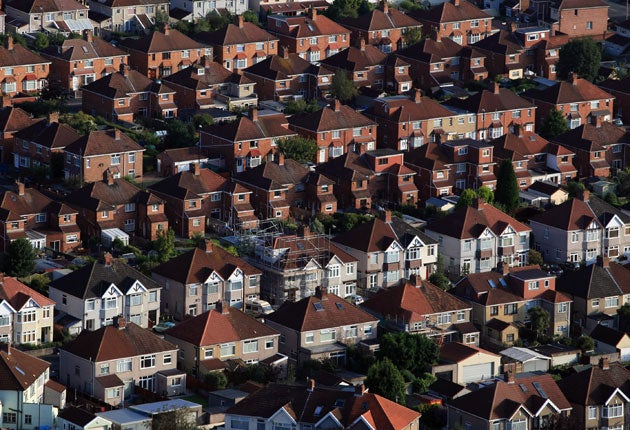House prices up for fourth consecutive month

House prices rose for the fourth month in a row during August as the market continued to be boosted by a shortage of homes for sale, figures showed today.
The average cost of a home in the UK jumped by 1.6 per cent during the month, the biggest increase since December 2006, according to Nationwide Building Society.
The annual rate at which prices are falling also continued to ease during August, narrowing to just 2.7 per cent, down from 6.2 per cent in July.
The group said prices were now 3.2 per cent higher than at the beginning of 2009 at an average of £160,224, although it added that they were still 14.4 per cent below their peak in October 2007.
Martin Gahbauer, Nationwide's chief economist, said: "The exceptionally low level of interest rates offers some explanation for why house prices have not repeated the very sharp falls of 2008."
He said low interest rates had fed through into lower mortgage repayments for existing homeowners, making it easier for people who lost their jobs to continue to afford their home loan.
As a result fewer people have been forced to sell their home as is normally the case during a recession, and this has contributed to shifting the balance of supply and demand in favour of sellers during 2009.
Low interest rates have also helped make property more affordable for first-time buyers, boosting demand, despite the ongoing problems in the mortgage market.
But Mr Gahbauer warned that when interest rates did start to rise again it could make the recovery in the housing market "bumpier" than might be expected following the recent run of price rises.
The latest figures on the property market come just days after the British Bankers' Association said the number of mortgages approved for house purchase had risen to a 17-month high during July.
The Council of Mortgage Lenders also reported a 26 per cent rise in mortgage lending in July to its highest level for nine months, as buyers continued to return to the market.
But despite the recent pick up in housing transactions, economists have warned that the number of homes changing hands still remains well down on normal levels.
The ongoing problems in the mortgage market are also continuing to limit the number of people getting on to the housing ladder, despite some recent signs that lenders are beginning to loosen their lending criteria.
As a result, it is thought any recovery in the housing market is likely to be gradual, with some commentators warning that further price falls cannot be ruled out.
Join our commenting forum
Join thought-provoking conversations, follow other Independent readers and see their replies
Comments
Bookmark popover
Removed from bookmarks